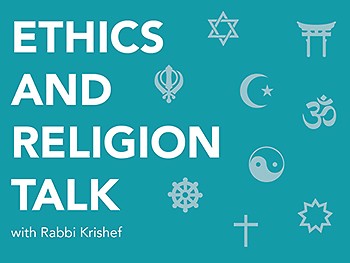The Reverend Colleen Squires, minister at All Souls Community Church of West Michigan, a Unitarian Universalist Congregation, responds:
Personally I think the best way to go about these conversations is to start by articulating your faith’s perspective simply and clearly. From a Unitarian Universalist perspective I am called to affirm the inherent worth and dignity of every person and to have respect for the interdependent web of all existence of which we are a part. My faith calls me to be a good shepherd to our planet therefore I must care deeply and urgently about climate change. At the core of most religions there are similar teachings. I would keep the conversation within the faith framework and avoid the politics of the topic. We have been blessed with one beautiful and magnificent planet and yet as humans we are the greatest cause of its destruction. The creation of the universe and our earth are precious gifts it is up to us to honor and care for them and it is from that perspective I believe you will find agreement.
Fred Stella, the Pracharak (Outreach Minister) for the West Michigan Hindu Temple, responds:
This is a challenge, as most often we tend to use religion to confirm our own biases. It is quite easy to go through sacred writ and find exactly what we want to bolster our opinions. Take climate change, for example. If I am convinced beyond doubt that the world is ending soon, why wouldn’t I be excited about throwing as much carbon into the air as quickly and cheaply as I can? While Hinduism as a religion is quite liberal, in that it doesn’t require unquestioning loyalty to a specific system of beliefs, it allows devotees to form opinions from one end of the political spectrum to the other.
What is important to remember in our tradition is that our points of view are not us, which so many subconsciously take to be the case. Undue attachment to an opinion blinds us to developing deeper understanding of complex issues. Purposefully seeking out opposing outlooks on controversial subjects is not only an exercise in socio-political education, but a spiritual practice as well.
Rev. Ray Lanning, a retired minister of the Reformed Presbyterian Church of North America, responds:
Reformed and Presbyterian Christians cherish the approach taught by our great spiritual forebear, Augustine of Hippo: Fides quaerens intellectum, “a faith that seeks understanding.” Your aim should be to understand different perspectives, not to debate or refute them, and certainly not to offend others. A good rule is found in the Epistle of James: “My beloved brethren, let every man be swift to hear, slow to speak, slow to wrath: for the wrath of man worketh not the righteousness of God” (James 1:19, 20).
Discussion of “hot button issues” can only be profitable when there is mutual understanding, and the rules of God’s Word are observed. But we live in superheated times, when such discussion is made almost impossible by the degree to which feelings are roused, minds made up, and sides taken in a culture war. Partisanship is a blinding, deafening, anger-stirring power. “In the multitude of words there wanteth not sin: but he that restraineth his lips is wise” (Proverbs 10:19).
Ty Silzer, a former pastor in the Presbyterian Church in America, responds:
First off, I must stress relationships over beliefs. Paul repeatedly talks about the concept of the weaker brother (and sisters) within his letters. What do we do with the weaker sibling? Convince them they’re wrong? No. We respect their current position.
Next, I would change your preposition from “talk to” to “talk with.” Who likes being “talked at“? In a social-media-driven society where everyone has an opinion and a soapbox, listening is more critical than ever. This, too, puts the other person first. From James (1:19), “My dear brothers and sisters, take note of this: Everyone should be quick to listen, slow to speak…”
One secret to listening, is combining asking-lots-of-good-questions with shutting-up. Jesus was the Master of asking questions—in fact, He often answered questions with questions. This leads to my next point: commonality. Jesus would seek out what He had in common with others—“What do you say?” How did they arrive at their point of view? What do they know that you don’t? Discovering what we have in common builds bridges and provides conversation launchpads.
James 1:19 ends with “slow to become angry”—which illustrates my next point: non-reactivity. Because the other party has a differing view, and we’re dealing with the dinner-table-forbidden topics, it’s vitally important to maintain composure and love the other person, above all.
Finally, if they are open, tell really good stories. Humans process concepts and data much better through stories than they do through charts and facts. Jesus was the Master Storyteller.
This column answers questions of Ethics and Religion by submitting them to a multi-faith panel of spiritual leaders in the Grand Rapids area. We’d love to hear about the ordinary ethical questions that come up in the course of your day as well as any questions of religion that you’ve wondered about. Tell us how you resolved an ethical dilemma and see how members of the Ethics and Religion Talk panel would have handled the same situation. Please send your questions to [email protected].
The Rapidian, a program of the 501(c)3 nonprofit Community Media Center, relies on the community’s support to help cover the cost of training reporters and publishing content.
We need your help.
If each of our readers and content creators who values this community platform help support its creation and maintenance, The Rapidian can continue to educate and facilitate a conversation around issues for years to come.
Please support The Rapidian and make a contribution today.
